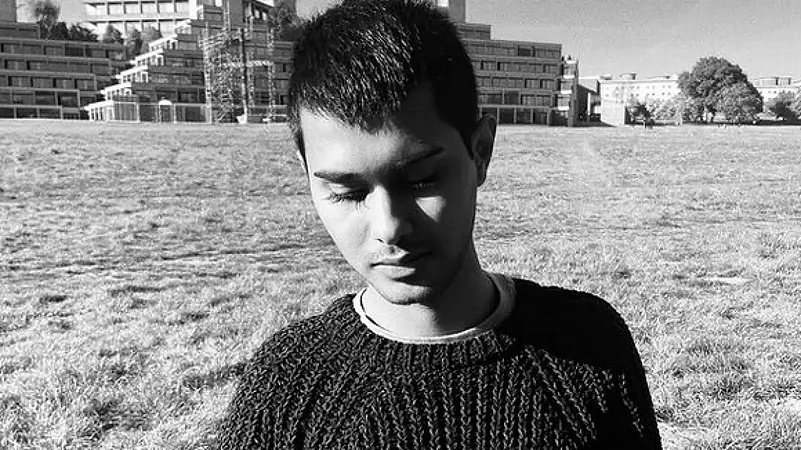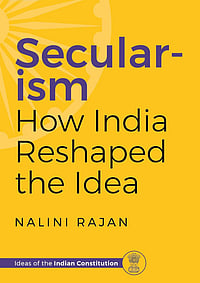American author Gloria Watkins, better known by her pen name Bell Hooks, defines queerness as not solely focused on one’s sexual partners (although that can be a dimension), but as the self in conflict with its surroundings. It’s about inventing, creating, finding a voice, a space to thrive and a place to exist.
The quest for inventing and creating such a space is an ongoing revolution in India. Since our being is never a monolith but an intersection of diverse identities, our struggles are also in different forms.
Living in Jabalpur, Madhya Pradesh, with an urge to break free, Aditya Tiwari, a poet and LGBTQIA+ activist, dreamt of a place where he could express himself as he saw fit. This urge, fuelled by heartbreak, compelled him to channel his emotions into poetry, which he then posted on Tumblr with no expectations whatsoever.
But fate had other plans. It intervened through a beloved friend, who stumbled upon his poems and encouraged him to get them published. Uncertain about the publishing process, he put the plan on the backburner for a while. However, he later found a supportive publisher in Delhi. With no writing background in his family, he had to learn everything on his own from scratch. This effort resulted in the creation of ‘April is Lush’, a collection of poetry about love, loss, heartbreak, trauma, queerness, women, and self-worth.
As often happens with queer writers, his book was initially overlooked but gradually gained enough acclaim to attract the attention of other literary personalities. ‘April is Lush’ eventually found its way into Ashoka University’s Centre for Studies in Gender and Sexuality. Parmesh Shahani, author of ‘Queeristan’ and head of the Godrej India Culture Lab, heaped praise on his book, which he described as: “A brilliant new debut collection of poems. The poems are deceptively simple. Aditya has seen and felt so much at such a young age and that beauty shines through on the pages.”
Today, Aditya has transcended his style of writing, thanks to fellow writers from the community like Parmesh, Akhil Katyal, Maya Sharma, etc., who have helped him evolve as an artist.
Belonging is an essential feeling for queer children while growing up, yet society often denies them the liberty to be themselves, pushing them to hide their true essence in the closet. Aditya went through the same ordeal, but he dreams of a future where such a repressive scenario is a rarity, rather than a norm and this is why he has been planning to write something inspiring, helping the younger generation comprehend the diverse struggles of the queer community, leading to our current progress.
That’s when Chiki Sarkar of Juggernaut Books reached out to him with a proposal to write another book along similar lines, resulting in ‘Over the Rainbow’, a collection of 19 stories featuring queer individuals who have carved spaces in their respective ways where queer people can exist and thrive. This book contributes to the broader South Asian world of queer literature, aiding younger generations in finding their sense of belonging. Aditya sees this as his way of rectifying the harm done to future generations. Simultaneously, he remains hopeful, as queer writers are sharing their own stories with a wider audience, indicating better days ahead.
Even though he has survived multiple hate crimes in his own city, Aditya is an optimist, believing that progress, albeit slow, is happening. He acknowledges that while the LGBTQIA+ community is becoming more vocal in its representation, certain individuals are also becoming more expressive in their hatred of the community. Aditya quotes the famous line from the song in the Rajesh Khanna and Sharmila Tagore starrer film ‘Amar Prem’, ‘Kuch to log kahenge, logon ka kaam hai kehna’ (People will always say something; that’s all they do), emphasising the need to focus on the tide of change that is coming through. Social media has empowered many queer individuals to embrace their true selves and be celebrated for it. Personalities like Sushant Divgikar, Trinetra Haldar Gummaraju and several others are finally getting the limelight they deserve.
Encouraged by the positive strides made by the LGBTQIA+ community, Aditya champions a shift in societal mindsets, advocating for changing people's discriminatory attitudes rather than solely relying on changes in the country's laws. It is important to remember that we all have the same heart.






















